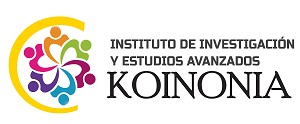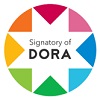Pensamiento crítico en estudiantes de básica media. Revisión sistemática
Resumen
Este estudio realiza una revisión sistemática de la literatura relacionada con el desarrollo del pensamiento crítico en estudiantes de educación básica media; habilidad considerada una competencia esencial para la formación de ciudadanos autónomos. Se empleó el protocolo PRISMA para recuperar y filtrar registros de SCOPUS, Web of Science, ERIC, PsycINFO y Google Scholar, aplicando criterios de inclusión que abarcaron estudios cuantitativos, cualitativos y mixtos en inglés, español y portugués. Se evaluaron 150 estudios según diseño metodológico, contexto geográfico y estrategias pedagógicas. Los resultados evidenciaron que el aprendizaje colaborativo, los mapas conceptuales y los entornos digitales promovieron mejoras sustanciales en habilidades de análisis y disposiciones críticas. Sin embargo, se identificó heterogeneidad en los instrumentos utilizados y la ausencia de investigación cualitativa profunda y seguimiento longitudinal. Se concluyó que, pese a la eficacia demostrada, era necesario validar herramientas y diseñar estudios mixtos y prolongados para garantizar la sostenibilidad de los resultados.
Descargas
Citas
Bissell, A. N., & Lemons, P. P. (2006). A new method for assessing critical thinking in the classroom. BioScience, 56(1), 66–72. https://doi.org/10.1641/0006-3568(2006)056[0066:ANMFAC]2.0.CO;2
Borenstein, M., Hedges, L. V., Higgins, J. P. T., & Rothstein, H. R. (2009). Introduction to meta-analysis. Wiley. https://doi.org/10.1002/9780470743386
Brookfield, S. D., & Preskill, S. (2005). Discussion as a way of teaching: Tools and techniques for democratic classrooms. John Wiley & Sons. https://n9.cl/me1rh
Cobos, N., Gualdrón, E., & De la Barrera, A. (2021). La argumentación oral para el desarrollo del pensamiento crítico en el aula. Revista Boletín Redipe, 10(9), 48–65. https://doi.org/10.36260/rbr.v10i9.1426
Correa, E., Chávez, M. L., & Tarasow, F. (Eds.). (2021). De la emergencia a la estrategia: Experiencias y aprendizajes sobre educación híbrida en México y Argentina. Universidad de Guadalajara. https://n9.cl/m1fwn
Critical Appraisal Skills Programme. (2024). CASP checklist for systematic reviews. https://casp-uk.net/casp-tools-checklists/systematic-review-checklist/
Dong, J., Xu, S., Zhang, W., Yun, P., Jiang, W., & Yan, H. (2023). Connectome-based predictive modeling: A new approach of predicting individual critical thinking ability. Thinking Skills and Creativity, 49, 101378. https://doi.org/10.1016/j.tsc.2023.101378
Ennis, R. H. (1987). A taxonomy of critical thinking dispositions and abilities. In J. B. Baron & R. J. Sternberg (Eds.), Teaching thinking skills: Theory and practice (pp. 9–26). W H Freeman/Times Books/ Henry Holt & Co. https://psycnet.apa.org/record/1986-98688-001
Facione, P. A. (1990). Critical Thinking: A Statement of Expert Consensus for Purposes of Educational Assessment and Instruction. Research Findings and Recommendations. ERIC. https://eric.ed.gov/?id=ED315423
Halpern, D. F. (1998). Teaching critical thinking for transfer across domains: Dispositions, skills, structure training, and metacognitive monitoring. American Psychologist, 53(4), 449–455. https://doi.org/10.1037/0003-066X.53.4.449
Li, S., Ren, X., Schweizer, K., Brinthaupt, T. M., & Wang, T. (2021). Executive functions as predictors of critical thinking: Behavioral and neural evidence. Learning and Instruction, 71, Article 101376. https://doi.org/10.1016/j.learninstruc.2020.101376
Li, S., Wang, Z., & Sun, Y. (2024). Relationship between thinking dispositions, working memory, and critical thinking ability in adolescents: A longitudinal cross-lagged analysis. Journal of Intelligence, 12(6), 52. https://doi.org/10.3390/jintelligence12060052
Lionenko, M., & Huzar, O. (2023). Development of critical thinking in the context of digital learning. Economics and Education, 8(2), 29-35. https://doi.org/10.30525/2500-946X/2023-2-5
Liu, Y., & Pásztor, A. (2022). Effects of problem-based learning instructional intervention on critical thinking in higher education: A meta-analysis. Thinking Skills and Creativity, 45, 101069. https://doi.org/10.1016/j.tsc.2022.101069
Meirbekov, A., Maslova, I., & Gallyamova, Z. (2022). Digital education tools for critical thinking development. Thinking Skills and Creativity, 44, 101023. https://doi.org/10.1016/j.tsc.2022.101023
Moreira Alcívar, E. F. (2025). Aprendizaje basado en retos (ABR) para el fomento del pensamiento creativo y divergente en adolescentes: diseño, implementación y evaluación en contextos escolares del nivel secundario. Revista Científica Zambos, 4(2), 171-184. https://doi.org/10.69484/rcz/v4/n2/119
Núñez, L., Gallardo, D., Aliaga, A., & Díaz, J. (2020). Estrategias didácticas en el desarrollo del pensamiento crítico en estudiantes de educación básica. Eleuthera, 22(2), 31–50. https://doi.org/10.17151/eleu.2020.22.2.3
Page, M. J., McKenzie, J. E., Bossuyt, P. M., Boutron, I., Hoffmann, T. C., Mulrow, C. D., Shamseer, L., Tetzlaff, J. M., Akl, E. A., Brennan, S. E., Chou, R., Glanville, J., Grimshaw, J. M., Hróbjartsson, A., Lalu, M. M., Li, T., Loder, E. W., Mayo-Wilson, E., McDonald, S., ... Moher, D. (2021). The PRISMA 2020 statement: An updated guideline for reporting systematic reviews. PLOS Medicine, 18(3), e1003583. https://doi.org/10.1371/journal.pmed.1003583
Paul, R., & Elder, L. (2009). The miniature guide to critical thinking concepts and tools. Rowman & Littlefield. https://n9.cl/bmy559
Piaget, J. (1977). The Role of Action in the Development of Thinking. In: Overton, W.F., Gallagher, J.M. (eds) Knowledge and Development. Springer. https://doi.org/10.1007/978-1-4684-2547-5_2
Ramdani, D., Susilo, H., Suhadi, & Sueb. (2022). The effectiveness of collaborative learning on critical thinking, creative thinking, and metacognitive skill ability: Meta-analysis on biological learning. European Journal of Educational Research, 11(3), 1607–1628. https://eric.ed.gov/?id=EJ1353453
Sánchez-Meca, J. (2022). Revisiones sistemáticas y meta-análisis en Educación: un tutorial. RiiTE Revista interuniversitaria de investigación en Tecnología Educativa, 5–40. https://doi.org/10.6018/riite.545451
Shi, Y., Yang, H., Dou, Y., & Zeng, Y. (2023). Effects of mind mapping-based instruction on student cognitive learning outcomes: a meta-analysis. Asia Pacific Education Review, 24(3), 303-317. https://doi.org/10.1007/s12564-022-09746-9
Tang, Y., Hung, J. L., Du, X., Li, H., & Yang, S. (2025). Exploring the impact of students’ social and cognitive skills on online Collaborative Problem Solving: empirical evidence from neuroscience. Behaviour & Information Technology, 1–17. https://doi.org/10.1080/0144929X.2025.2497446
Thomas, B. H., Ciliska, D., Dobbins, M., & Micucci, S. (2004) A process for systematically reviewing the literature: providing the research evidence for public health nursing interventions. Worldviews Evid Based Nurs., 1(3), 176-84. https://doi.org/10.1111/j.1524-475X.2004.04006.x
Xu, E., Wang, W., & Wang, Q. (2023). The effectiveness of collaborative problem solving in promoting students’ critical thinking: A meta-analysis based on empirical literature. Humanities and Social Sciences Communications, 10, Article 16. https://doi.org/10.1057/s41599-023-01508-1
Derechos de autor 2025 Aracely Jacqueline Mendoza-Vega, Marjorie Juana Vera-Arias

Esta obra está bajo licencia internacional Creative Commons Reconocimiento-NoComercial-CompartirIgual 4.0.
CC BY-NC-SA : Esta licencia permite a los reutilizadores distribuir, remezclar, adaptar y construir sobre el material en cualquier medio o formato solo con fines no comerciales, y solo siempre y cuando se dé la atribución al creador. Si remezcla, adapta o construye sobre el material, debe licenciar el material modificado bajo términos idénticos.
OAI-PMH URL: https://cienciamatriarevista.org.ve/index.php/cm/oai














